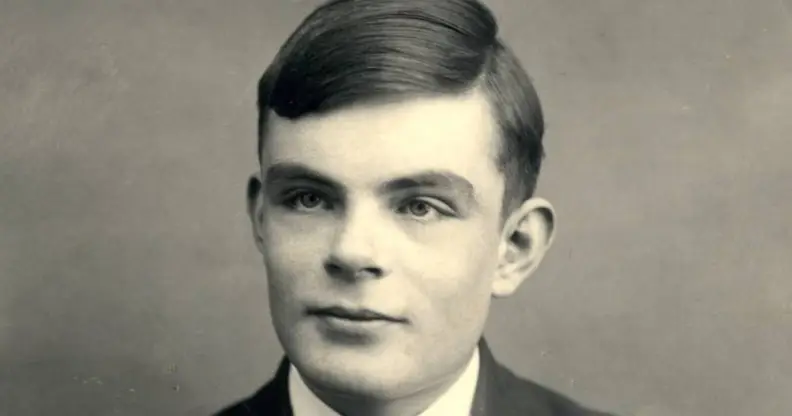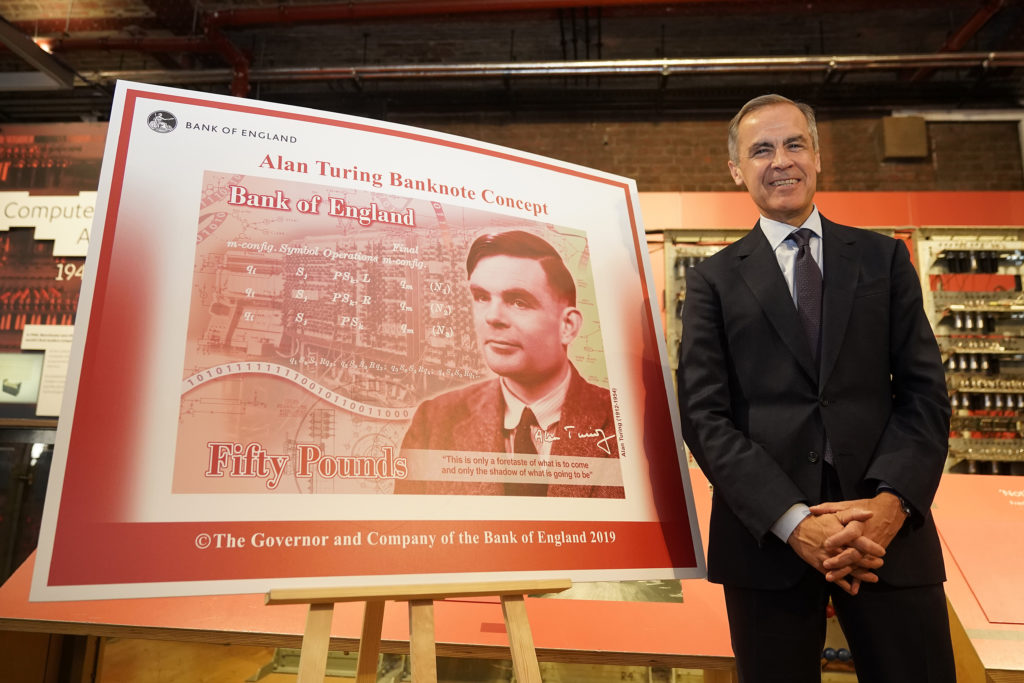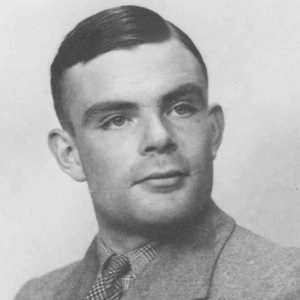Remembering Alan Turing, the gay British war hero who died after being persecuted by his country

Alan Turing took his own life after being convicted of gay sex offences. (Getty)
Alan Turing was a war hero, a giant of computer science, and a gay man who simply wanted to be able to live freely.
History should remember Turing – who took his own life 70 years ago on 7 June, 1954 – as the innovative mathematician and codebreaker who played a pivotal role in ending the Second World War, and laid the foundations for personal computing and artificial intelligence.
“Alan Turing was an outstanding mathematician whose work has had an enormous impact on how we live today,” Mark Carney, then governor of the Bank of England, said while announcing a new £50 note bearing the scientist’s likeness in July 2019.
“Turing is a giant on whose shoulders so many now stand.”
It is impossible to speak of Turing’s achievements and legacy without also mentioning the brutal, institutionalised homophobia that saw him persecuted as a gay man and ultimately cut his life short.

Who was Alan Turing?
Born June 23, 1912, Alan Turing was a uniquely gifted thinker. Educated at Cambridge, he delivered a paper just two years after graduation which presented the idea of his “Turing machine”, a predecessor to the modern computer.
He spent the next few years studying for a PhD at Princeton University, after which he returned to Cambridge and joined the Government Code and Cypher School (GCCS) – a code-breaking squad.
During the Second World War, Turing worked at the famous Bletchley Park where he helped to crack the Enigma code use by the German navy to transmit secret communications. It has been said that without the efforts of Turing and his colleagues, the war might have continued for two to four years longer. Each year the war raged on claimed the lives of about seven million.
After the war ended, Turing continued to work on computing innovation. In 1950, he proposed the “Turing test” to determine whether a computer was artificially intelligent. Seven decades on, it remains an important concept in AI.

What did Alan Turing do and why is he an LGBTQ+ icon?
But it was around this time that Alan Turing’s life took a turn, as a gay man alive at a time when homosexuality was a crime. In January 1952, he called police after a home break-in and was forced to admit that he’d had a sexual relationship with the robber, 19-year-old Arnold Murray.
Despite being a war hero, Turning was arrested and admitted to “acts of gross indecency”. He was given a choice between prison or probation on the condition he undergo cruel chemical castration – hormonal treatment to eliminate his libido, and therefore any sexual urges. He chose the latter.
His conviction meant that his security clearance at GCHQ – the post-war successor to GCCS – was revoked, and he was banned from entering the US, ending his career as he knew it – though he was able to continue his academic work.
Around this time, Turing wrote to a friend, confiding: “I have had a dream indicating rather clearly that I am on the way to being hetero, though I don’t accept it with much enthusiasm, either awake or in the dreams.”
How did he die?
On June 7, 1954, aged 41, Alan Turing died by suicide. Some 13 years later, in 1967, came the partial decriminalisation of homosexuality in England and Wales.
It wasn’t until 2009 that the government apologised for the treatment Turing received as a gay man by the British state.
Then-prime minister Gordon Brown described his ordeal as “horrifying” and “utterly unfair”.
“We’re sorry, you deserved so much better,” he wrote in a statement.
“This recognition of Alan’s status as one of Britain’s most famous victims of homophobia is another step towards equality and long overdue.”
“But even more than that, Alan deserves recognition for his contribution to humankind … It is thanks to men and women who were totally committed to fighting fascism, people like Alan Turing, that the horrors of the Holocaust and of total war are part of Europe’s history and not Europe’s present.
“So on behalf of the British government, and all those who live freely thanks to Alan’s work I am very proud to say: we’re sorry, you deserved so much better.”
Four years on, in 2014, on Turing was granted a posthumous royal pardon, and in 2017 a law was passed in his name allowing thousands of men convicted of historical gay sex offences to apply for a formal pardon.
At the time it was passed 15,000 queer men were said to be eligible for a pardon, while another 50,000 who had died had their convictions deleted.
However, by September 2019 fewer than 200 living people had successfully had received pardons.
Sixty years after his death, Turing’s life was dramatised in the Oscar-winning 2014 biopic The Imitation Game, which starred Benedict Cumberbatch as the late LGBTQ+ icon.
How did this story make you feel?

